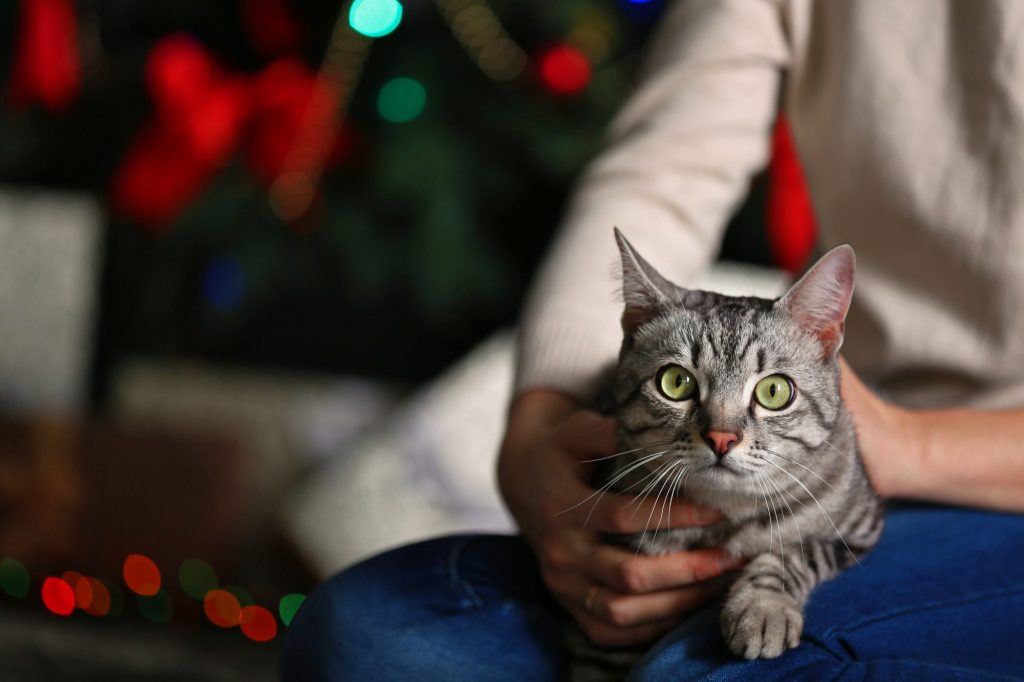Christmas time in most households is a time of increased activity and excitement, which often means a change of routine for our pets….
With all the visitors, odd noises such as crackers, moving of furniture to accommodate decorations and trees, it’s no wonder that more sensitive cats and dogs can become quite stressed and unhappy around this time of year. We tend to see cats suffering from cystitis around Christmas which is often brought on by stressful events; changes in routine, although seemingly minor to us, can be quite a trial for them.
It’s worth allowing pets access to a quiet place within the home where they feel safe, away from unfamiliar visitors or loud parties. Plug-in pheromone diffusers can be helpful in keeping more fearful pets calm.
Treat… or trouble?
Another hazard is the variety of festive foods – chocolates, nuts or mince pies – often on low tables or wrapped up under the tree, and easily accessible to pets with their excellent sense of smell! Theobromine, found in chocolate, is toxic to dogs, with dark chocolate containing the highest levels. Raisins in mince pies and cake can also be poisonous to dogs. Food left on worktops is at risk of theft from cats and dogs with long legs, a good jump, and a keen sense of smell.
Remember, pets are not used to eating human food so to ‘treat’ them to a turkey dinner or rich scraps can lead to diarrhoea and vomiting; eating fatty foods may even trigger pancreatitis, which usually requires veterinary intervention. Probiotic pastes and special diets are available over the counter to treat mild cases of gastric upsets, so it may be worth stocking up beforehand just in case!
Our homes look amazing with bright, sparkly decorations; please do just be aware they can also be viewed as playthings! We’ve seen cats who have swallowed long strands of tinsel and subsequently needed anaesthetising to remove; small toys cast aside in the excitement can easily be swallowed by puppies or dogs, causing intestinal obstructions. Fairy light cables should be hidden away – chewed cables could cause a nasty shock! Poinsettia, mistletoe and holly can also cause upsets if eaten.
Seasonal hazard
It’s worth mentioning the dangers of antifreeze poisoning during winter. Antifreeze spillages are particularly attractive to cats because of their sweet taste, but ingesting even a small amount can cause acute – often fatal – kidney failure. Signs of antifreeze poisoning are similar to those of alcohol poisoning: cats may appear uncoordinated and wobbly, they may twitch or tremor, drink excessively and seem generally unwell. Rapid veterinary attention is essential.
With that advice in mind, I hope you and your pets have a very happy and healthy Christmas this year!
Sarah Probert BVSc MRCVS
Bridgnorth Veterinary Centre






